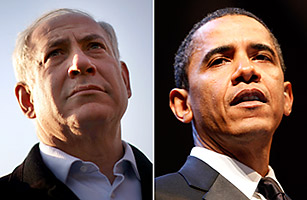
The Words Obama Left Out Until the End
In the end, however, the conversation of the two presidents lengthened and so the individual meeting took up the entire 50 minutes. For the two summits who have only met once before, the increase in time to share each other's thoughts freely is definitely a positive signal. Moreover, this time there were no disagreements that often arose at every summit between a Korean president from a conservative party and an American president from the Democratic Party or conversely between a Korean president from a liberal party and an American president from the Republican Party. The meeting atmosphere is said to have been very good as evidenced by President Obama's frequence use of the phrase “I completely agree”. According to an official from the Blue House, the two leaders spent most of their 50-minute meeting discussing ways to draw North Korea to the discussion table. President Obama even provided the Rose Garden as the site of the joint press conference, which he seldom opened to other leaders. There, the two leaders voiced in unison a forceful message of rejecting a nuclear North Korea, saying that they will break the pattern of North Korea provoking, stalling for time, and getting benefits again.
In this manner the two leaders put their houses in order by pledging strong collaboration on the urgent North Korea nuclear issue. This is one achievement gleaned from the summit amidst the North Korean nuclear crisis. However, the truth is that gains in other areas obtained from President Obama, who is considered more pragmatic and realistic than his predecessor President Bush, fell short of expectations. In particular, the Korea-U.S. Free Trade Agreement was a tough sell.
From the start, our government engaged in a full-out effort to obtain from President Obama a public promise to spur efforts to pursuade Congress to ratify the Korea-U.S. FTA. Yet in the end those words did not come out of President Obama's mouth. Furthermore, President Lee's ambitious proposal for a ' five-party talks with six-party talks participants minus North Korea' that he prepared before the summit did not receive much weight in the joint press conference, for the American position was that it was more important at the present to further emphasize sanctions against North Korea. The lesson learned that meticulous preparation and presuasion is more important than rosy expectations when doing diplomacy with Obama can be considered an achievement of this summit as important as the promise of collaboration on the North Korean nuclear issue.

